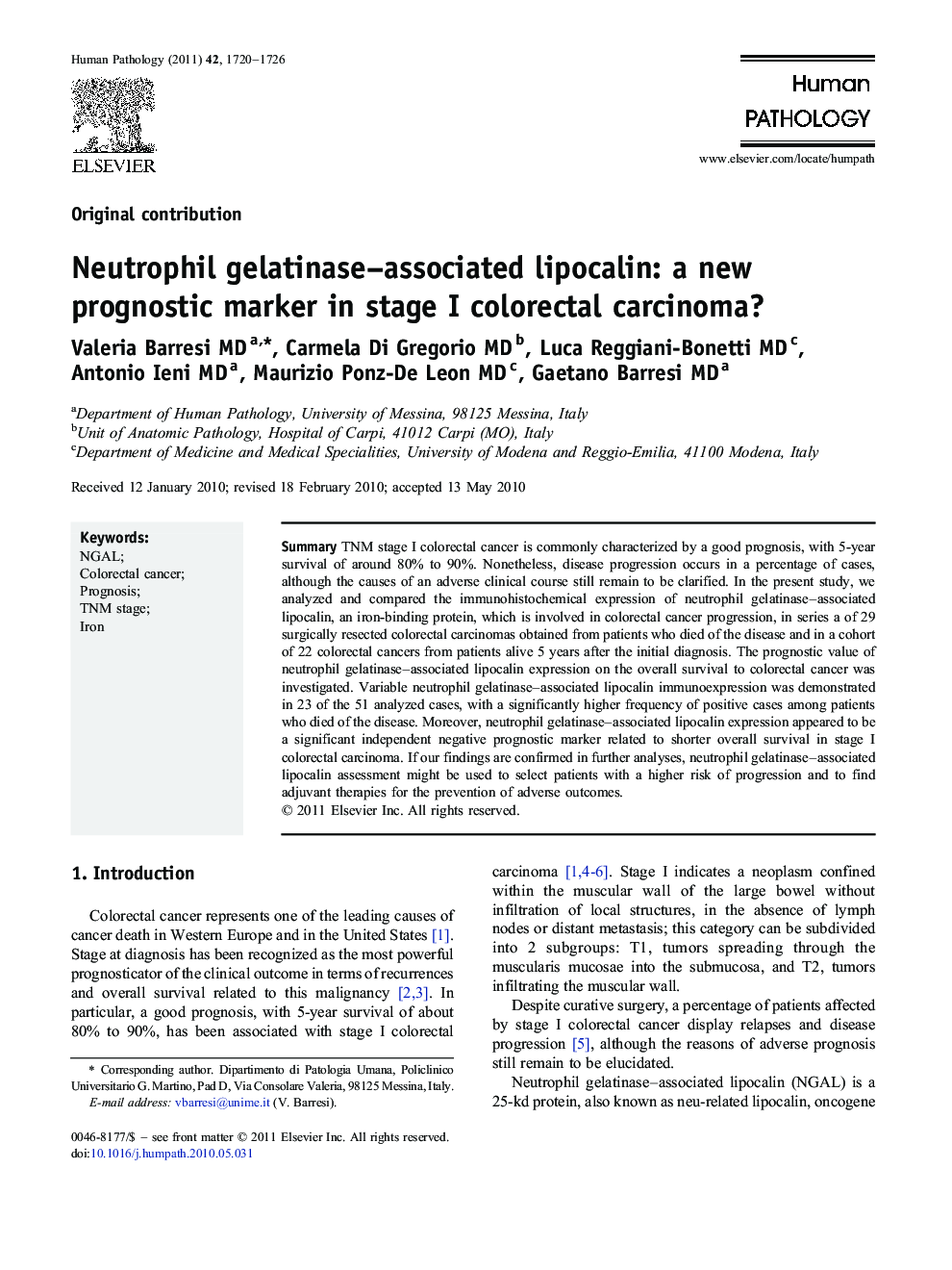| Article ID | Journal | Published Year | Pages | File Type |
|---|---|---|---|---|
| 4133682 | Human Pathology | 2011 | 7 Pages |
SummaryTNM stage I colorectal cancer is commonly characterized by a good prognosis, with 5-year survival of around 80% to 90%. Nonetheless, disease progression occurs in a percentage of cases, although the causes of an adverse clinical course still remain to be clarified. In the present study, we analyzed and compared the immunohistochemical expression of neutrophil gelatinase–associated lipocalin, an iron-binding protein, which is involved in colorectal cancer progression, in series a of 29 surgically resected colorectal carcinomas obtained from patients who died of the disease and in a cohort of 22 colorectal cancers from patients alive 5 years after the initial diagnosis. The prognostic value of neutrophil gelatinase–associated lipocalin expression on the overall survival to colorectal cancer was investigated. Variable neutrophil gelatinase–associated lipocalin immunoexpression was demonstrated in 23 of the 51 analyzed cases, with a significantly higher frequency of positive cases among patients who died of the disease. Moreover, neutrophil gelatinase–associated lipocalin expression appeared to be a significant independent negative prognostic marker related to shorter overall survival in stage I colorectal carcinoma. If our findings are confirmed in further analyses, neutrophil gelatinase–associated lipocalin assessment might be used to select patients with a higher risk of progression and to find adjuvant therapies for the prevention of adverse outcomes.
